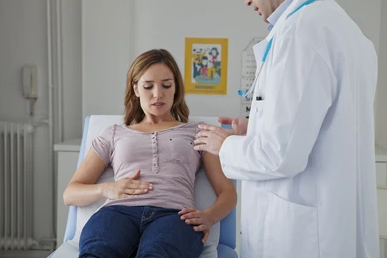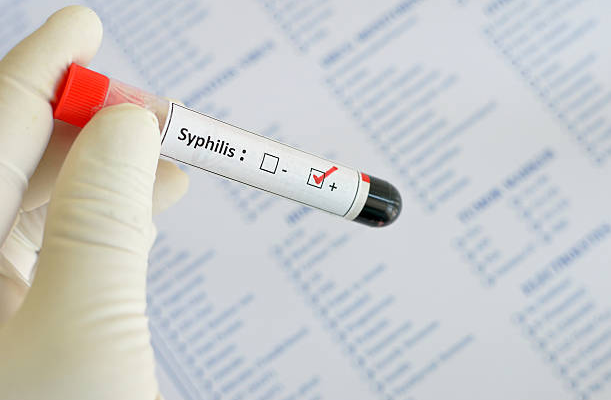In a Sexually Transmitted Infection (STI) Surveillance report released last Tuesday, the Centers for Disease Control and Prevention (CDC) warned of the alarming rise of syphilis, a serious but curable STI.
“In 2022, 207,255 cases of syphilis (all stages and congenital syphilis) were reported which is the greatest number of cases reported since 1950 and an increase of 17.3% since 2021,” the report said. With numbers this historically high, syphilis awareness and prevention deserve our center of attention.
In This Article: (5 min read)
- What is Syphilis & How it is Spread
- Signs and Symptoms & Effects of Syphilis In Pregnancy
- How to Prevent Syphilis & How it is Treated

What’s Syphilis?
????Syphilis is a sexually transmitted disease (STD) caused by the bacterium Treponema pallidum.
????Syphilis is curable.
????Gay, bisexual, and other men who have sex with men (MSM) are at increased risk and disproportionally affected.
???? Of the 59,000 cases in 2022, about a quarter were women and nearly a quarter were heterosexual men, according to the new CDC report.
????Syphilis can be prevented through safer sex practices including the correct and consistent use of condoms.
????Many people with syphilis do not have any symptoms or have only minor symptoms that go unnoticed.
????Congenital syphilis occurs when a pregnant person passes syphilis to their baby.
Screening can be done using rapid tests that can provide results in less than 20 minutes, allowing for immediate treatment.
????Treatment for syphilis is done with benzathine penicillin G injection.

Unprotected sex is a key means of contracting and spreading syphilis.
How Is Syphilis Spread?
You can get syphilis by direct contact with a syphilis sore during vaginal, anal, or oral sex. Syphilis can spread from a mother with syphilis to her unborn baby.
You should get tested regularly for syphilis if you are sexually active and are a gay or bisexual man, have HIV, are taking pre-exposure prophylaxis (PrEP) for HIV prevention, or have partner(s) who have tested positive for syphilis.
All pregnant women are required to have syphilis screening at their first prenatal visit.
What Are the Signs And Symptoms?
Many people with syphilis do not notice any symptoms. There are four stages of syphilis (primary, secondary, latent, and tertiary). During the first (primary) stage of syphilis, you may notice a single sore or multiple sores.
The sore is the location where syphilis entered your body. These sores usually occur in, on, or around the penis, vagina, anus, rectum, and lips or in the mouth. Secondary syphilis causes rash on the body, hands and feet.

How Does Syphilis Affect Pregnancy And Babies?
Syphilis in pregnancy, when not treated, treated late or treated with the incorrect antibiotic, results in 50−80% of babies having adverse complications.
Syphilis in pregnancy may lead to stillbirth, newborn death and babies born with syphilis (congenital syphilis).
Babies born with syphilis can have complications such as blindness, deafness, meningitis, developmental delays, and seizures.

How Is Syphilis Diagnosed?
Syphilis diagnosis is based on the person’s clinical and sexual history, physical examination, laboratory testing, as symptoms are not common or noticeable.
Laboratory tests for syphilis include direct detection of Treponella pallidum (the bacteria that causes syphilis) through a microscope or indirect methods such as blood tests.
Rapid tests are also available and can provide results in minutes, facilitating immediate treatment initiation.

How Is Syphilis Treated?
Syphilis is treatable and curable. People who suspect they may have syphilis should speak to their healthcare provider. The early stage of syphilis is treated with a benzathine penicillin G injection.
How to Prevent Syphilis
Syphilis is a preventable disease. Using condoms consistently and correctly is the best way to prevent syphilis and many other STIs. Syphilis can also spread through contact with other areas of the body not covered by a condom, including genitals, anus and mouth.
Pregnant women should be tested for syphilis at the first prenatal care visit and treated right away if the test result is positive. Congenital syphilis can only be prevented by diagnosing and treating the mother with penicillin.

Syphilis is preventable. Safe sex choices go a long way.
Complications of Syphilis
Syphilis increases the risk of acquiring HIV infection by approximately two-fold, as well as of other STIs, such as gonorrhoea, chlamydia, genital herpes, among others.
Without treatment, the tertiary phase of syphilis may lead multiple organs and systems, including brain, nerves, eyes, liver, heart, blood vessels, bones and joints, and even death.
Neurosyphilis (syphilis affecting the nervous system) can cause strong headache, serious muscular problems and mental health issues, including dementia.

